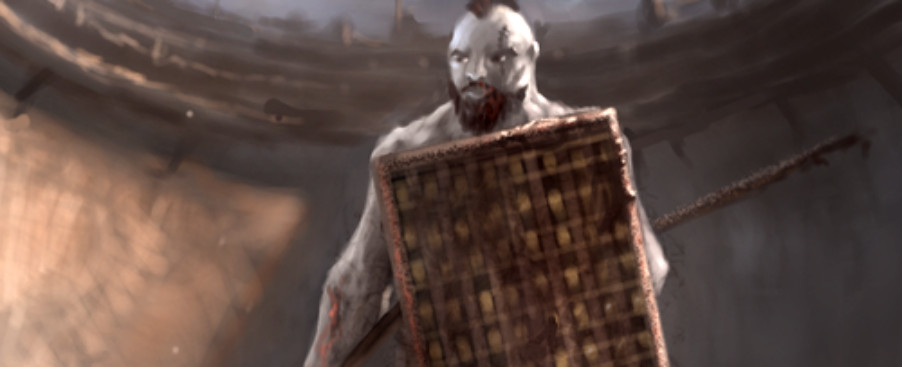Knights of the Chalice 2 - RPG Codex Review
-
Category: News ArchiveHits: 1604

Heroic Fantasy Games’ Knights of the Chalice is a bit of a cult-classic among RPG enthusiasts. The game combines a great sense of adventure with clever encounter design and more than decent enemy AI, and is simply a joy to play. However, according to this RPG Codex review, the game’s long-awaited sequel, or at least its first module, may have taken a few steps in the wrong direction.
Here’s a quick excerpt, and you take things from there:
The worst thing still is that after some point, Augury of Chaos turns into a quick draw contest. Either you win initiative and can obliterate the enemy first (or at least shut down his most important characters), or you get blown up to hell. You will start noticing this around the middle of chapter 3, and the final chapter 4 has that in every single encounter, and I’m not exaggerating. If there is even a single mage who gets to act before you, he will open with a double cast of Prismatic Void (a cute mass-AoE version of Prismatic Spray, courtesy of Pierre’s unhinged homebrew experiments), and remove at least 75% of your party from the game.
Honestly, the campaign feels like Pierre thought that since everyone liked the optional final battle in KotC1 so much, every single battle here ought to be like that too. It’s a neverending slaughterfest established by a sadistic gamemaster, who would have otherwise been quickly abandoned by his players in a real life situation. If you watched the cartoon Dexter’s Laboratory, you might remember the D&D spoof episode, where Dexter keeps fudging the dice against the players and throwing increasingly impossible odds at them. Augury of Chaos gives you the same experience. Eventually, one of your sole motivations for pushing on will be this morbid curiosity what kind of sadistic punishment the deranged gamemaster prepared for you around the next corner. Because beating those ridiculously overpowered encounters often isn't even satisfying when your only reward is just more forceful violation to come, without even as much as a broken penny in return.
And the funniest thing about this? I can bet my right butt cheek that Pierre never played through the campaign in a legit way, from start to finish, to test how it plays. You can tell by the Kickstarter gameplay preview videos, where he fails to beat each and every single encounter presented. This game was simply designed in a vacuum.
But what is perhaps the most depressing is that somewhere underneath this insanity, there is a good game to be had. Once you finally get your gear back in the middle of chapter 2, and before the quick draw contest starts in late chapter 3, the game actually shines and shows you how good it could be if it were better designed in all the other places. Make no mistake, during this time you are still severely outnumbered, and there are still a bunch of unfair aspects to the fights, but instead of being thoroughly stupid and hopeless, the encounters are instead cerebral and exciting. Some of the highlights include a goblin king and his cronies trying to swarm you from side rooms in a narrow tunnel, a bunch of lizardmen summoning a hydra against you, or a huge arena with you on one side, and an army of goblins and assorted critters on the other.
What makes these battles work is that they give you an interesting environmental setup that you can use to your advantage – for example, in the case of the goblin king, you can control the tide of incoming goblins with clever use of area spells at the entrances of the rooms. Furthermore, they mix a reasonable number of cannon fodder enemies with tough ones. They also don’t go overboard on casters. And finally, they leave you enough room for different approaches and a broad enough margin of error that beating them feels like an achievement to be satisfied with. This is another point where I have to stress the excellent implementation of the underlying mechanics. If you were not given all the options available to you as part of the D&D system, I don’t think these fights would be nearly as good as they are. The strategic potential that you have at hand is vast, and using it to its limits is always nothing short of a pleasure.

